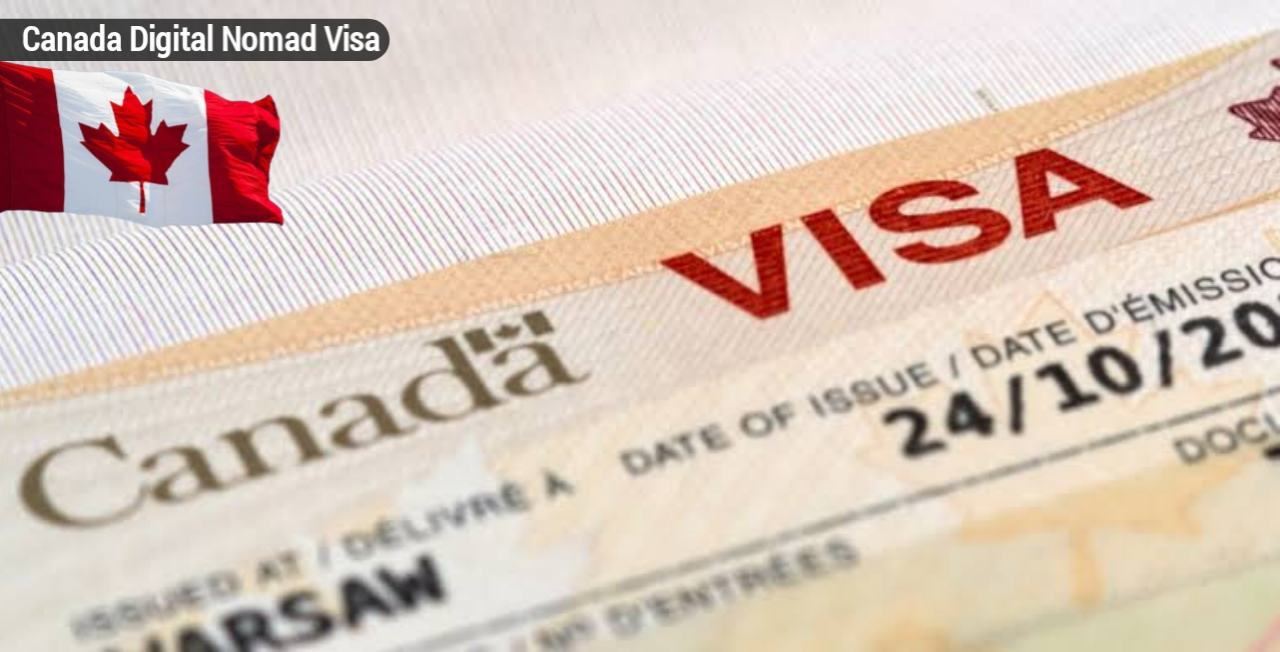Canada digital nomad visa is one of the most waited digital nomad visa, finally Canada now accept digital nomads to the country, according to the immigration and citizenship authority of Canada digital nomads now can stay up to 6 months in Canada and run their work/ job remotely.
Canada is known us land of opportunities, there is a very less amount of people who relocate to Canada and don’t succeed, the fact is that most people who relocated to Canada succeed in their targets and their goals.
What’s Canada digital nomad visa?
Canada officially don’t have a digital nomad visa but instead Canada allow digital nomads under visitor visa to stay in Canada for 6 months and work remotely in Canada.

The immigration, Refugee and citizenship Canada announced that digital nomads can apply for Canada visitor visa and stay for 6 months in Canada to work remotely.
Digital nomads need to leave Canada after 6 months, when you apply for Canada visitor visa for 6 months you have to convince the Visa officer that you will leave the Canada when your stay is over.
Canada digital nomad visa requirements
You have to apply for Canada visitor visa and than stay for 6 months in Canada. With this visa you are allowed to work remotely in Canada.
You need the following documents to apply for Canada digital nomad visa:
Passport: you need to have minimum 6 months valid passport with minimum 2 blanket pages.
Job: you have to be employed by a company or you offer services independently outside of Canada.
Insurance: a travel insurance is required when you apply for Canada visitor visa for digital nomad purposes .
Proof funds: you will need to present Bank statement, bank records or Bank account net balance with payslips, where you should have regular payments and a significant amount of funds to support yourself during your stay in Canada.
How to apply for Canada digital nomad visa?

To apply for Canada digital nomad visa you need to visa Canada immigration, refugee and citizenship Canada website ( IRCC).
Step 1: Create your account
The first thing you should do is creatine an account in IRCC, here you need to add the requested information, mostly in first step you need to add personal information such your name, surname, address, date of birth, place or birth and other.
Step 2: Add Personal information
now add the information of your documents, such passport, job, insurance and other, all these information should much your documents any misinformation maybe cause visa application rejection.
Step 3 : Job information
Here you need to add information about your job and upload ( if requested) documents regard your job.
Step 4: Financial Documents
Finally you have to add information about financial situation and upload proof of your funds, this is most important step, you know Canada is expensive place and you have to upload proof of funds that can support you for your stay in Canada.
Step 5: Submit your visa application
Now you have to submit the visa application, it’s different in each country but the embassy will guide you according to local regulations.
So you need to contact the embassy of Canada, they may request additional documents and you need to provide that. further they may invite you for interview.
Canada digital nomad visa benefits

Canada digital nomad visa is offer a unique benefit which is not available elsewhere in the world.
Local job opportunity: if you visit Canada as a digital nomad you can stay for more 6 months in Canada if you find a job in Canada.
No country allow visitors visa holder or digital nomad visa holder to find a job in country and than apply for residence and work physically in guest country.
Read more: Albania digital nomad visa guide
Canada is the only country that allow digital nomads fo find a job and Canada and than stay in Canada, you can apply for residence and when you meet requirements you can get Canada permanent residency and a way to Canadian citizenship.
Strengthen your passport: If you are a citizen of a country with a weak passport, having a Canadian visa can significantly enhance its strength. Living in Canada can make it much easier to obtain visas for other countries.
Citizenship: Canada is a great country with high levels of sympathy and respect. As a digital nomad, you can make Canada your home. Finding a job in Canada is not difficult, and once you do, you can apply for residency, which will pave the way to citizenship.
Canada digital tech strategy

Canada’s digital tech strategy aims to foster innovation, support digital transformation, and strengthen the tech ecosystem. Key components include:
1. Innovation and Research:Investing in research and development to drive technological advancements. Programs like the Strategic Innovation Fund support high-growth sectors including digital technology.
2. Talent Development: Addressing the skills gap by promoting STEM education, enhancing digital skills training, and attracting global talent through immigration programs like the Global Talent Stream.
3. Digital Infrastructure: Expanding high-speed internet access to rural and remote areas to ensure all Canadians can participate in the digital economy.
4. Support for Startups and SMEs: Providing financial and advisory support through initiatives like the Innovation Superclusters Initiative, which encourages collaboration between businesses, academic institutions, and non-profits to spur innovation.
5. Cybersecurity: Enhancing cybersecurity measures to protect businesses and individuals. The Canadian Centre for Cyber Security provides resources and guidance to bolster cybersecurity resilience.
6. Digital Government: Modernizing government services to be more accessible and user-friendly through digital platforms, ensuring efficient and transparent public service delivery.
7. Green Tech and Sustainability: Promoting the development and adoption of clean technologies to address climate change and support sustainable growth.
8. International Collaboration: Engaging in international partnerships to share knowledge, align regulatory frameworks, and promote Canadian tech on the global stage.
These efforts collectively aim to position Canada as a leader in the digital economy, ensuring sustainable growth and competitiveness in the global market.


